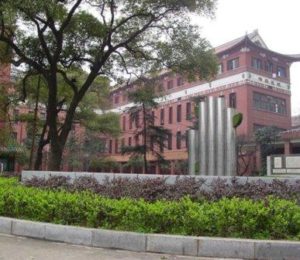
Flinders University will set up a new general practice (GP) research and training centre in China, providing a platform for medical graduates to become China’s first wave of GPs.
In a landmark deal, Flinders has signed a Memorandum of Understanding (MoU) with Central South University (CSU) in Changsha, the capital of Hunan province, to establish the China-Australia General Practitioner Education, Training and Research Centre at the 3rd Xiangya Hospital of CSU.
CSU set up a postgraduate GP training program in August 2012, with about 40 graduate medical practitioners having now completed the first year of the three-year course to become qualified GPs.
As part of the MoU, Flinders will help Central South design and implement the next two years of the program, which includes a rural clinical placement.
Flinders Associate Professor Lucie Walters, the co-director of the China-Australia General Practitioner Education, Training and Research Centre, said the partnership will help China to reach its goal of 400,000 qualified GPs by 2020.
“China doesn’t have a well-established GP system – most people in China guess which specialist they need to see or go straight to hospital,” Associate Professor Walters said.
“The problem with that model is that you get the worried well using up resources that aren’t needed while those who do need treatment either don’t get it, or don’t see the right specialist,” she said.
“The Chinese Government is now trying to significantly increase the number of GPs in China so that eventually GPs become the primary gatekeepers of healthcare.
“Flinders role in this will be to not only train medical practitioners to become GPs but also to train the trainers who will be teaching the first wave of GPs.”
Associate Professor Walters, who specialises in rural medical education, said a key focus of the Australia-China partnership is to train GPs for rural and remote regions.
“In China, the further away you are from the city the harder it is to access healthcare, which is why the Chinese Government wants to train a large proportion of GPs to work in rural areas,” she said.
“Flinders is internationally-renowned for its rural and remote medical program, and has been able to demonstrate that people who train in rural and remote regions also choose to work in these areas.”
Flinders University Deputy Vice-Chancellor (Research), Professor David Day, said the partnership will provide significant opportunities for Flinders staff and students.
“CSU will bring specialists out to Australia to learn about rural and remote general practice, which is a key strength for Flinders, and in return we’ll be sending our students over to China for various study exchanges,” Professor Day said.
“The partnership will also lead to a wealth of opportunities for staff, particularly in terms of professional development and clinical research collaborations.”
In addition to the GP program, Flinders is also working with CSU to develop and deliver dementia care education to Chinese clinicians.
As part of the collaboration, the two universities are currently developing guidelines, care models, tools and case studies to help trainers deliver dementia care education to trainee health professionals in community health centres.

